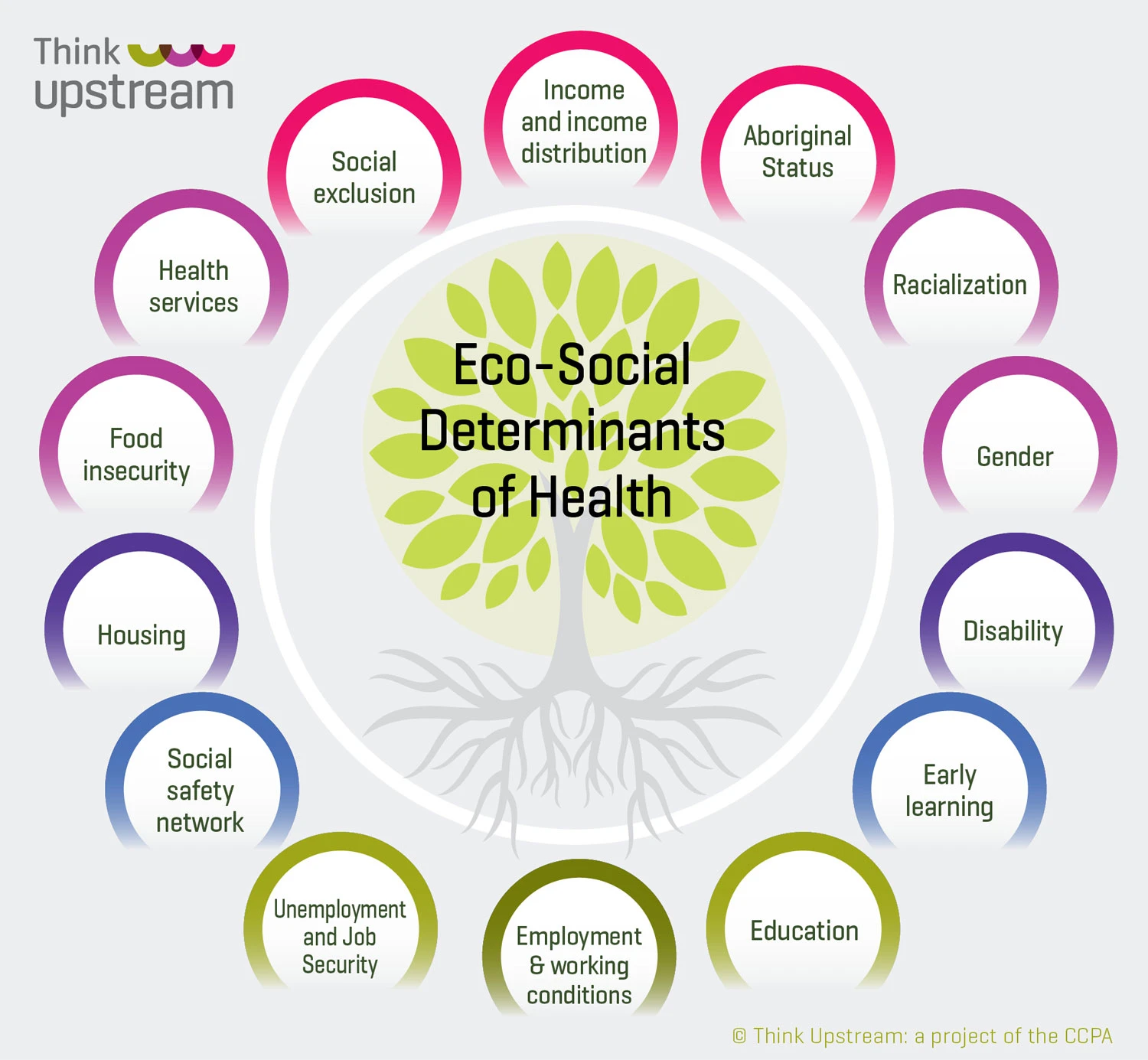2.3 Social Determinants of Health
The Public Health Agenda of Canada (PHAC) describes social determinants of health as a group of social and economic factors that relate to an individual’s place in society such as income, education or employment (2022). The broader health determinants as defined by PHAC are listed below:
- Income and social status
- Employment and working conditions
- Education and literacy
- Childhood experiences
- Physical environments
- Social supports and coping skills
- Healthy behaviours
- Access to health services
- Biology and genetic endowment
- Gender
- Culture
- Race/Racism (Government of Canada, 2022)
Children, their families, educators, and communities are impacted by social determinants of health. Early years’ settings provide spaces for people with diverse perspectives to come together to co-construct new ways of being that will ensure a sense of belonging for one another and to care for the places where they learn. As educators engage in different levels of advocacy for children, families, and one another, they are constantly finding ways to provide spaces that support diversity, equity and inclusion (DEI) for all.
Educators often disrupt dominant discourses to ensure children receive the support they need to secure their sense of belonging and healthy well-being. The Eco-Social Determinants of Health by Think Upstream (2023), a project by the Canadian Centre for Policy Alternatives provides educators with additional considerations when creating DEI supportive spaces

Image Alternative Text
Alterative Text: Eco-Social Determinants of Health include: social exclusion, income and income distribution, aboriginal status, racialization, gender, disability, early learning, education, employment and working conditions, unemployment and job security, social safety network, housing, food insecurity, and health services.
Exercise
Interactive Activity/Reflective Practice

